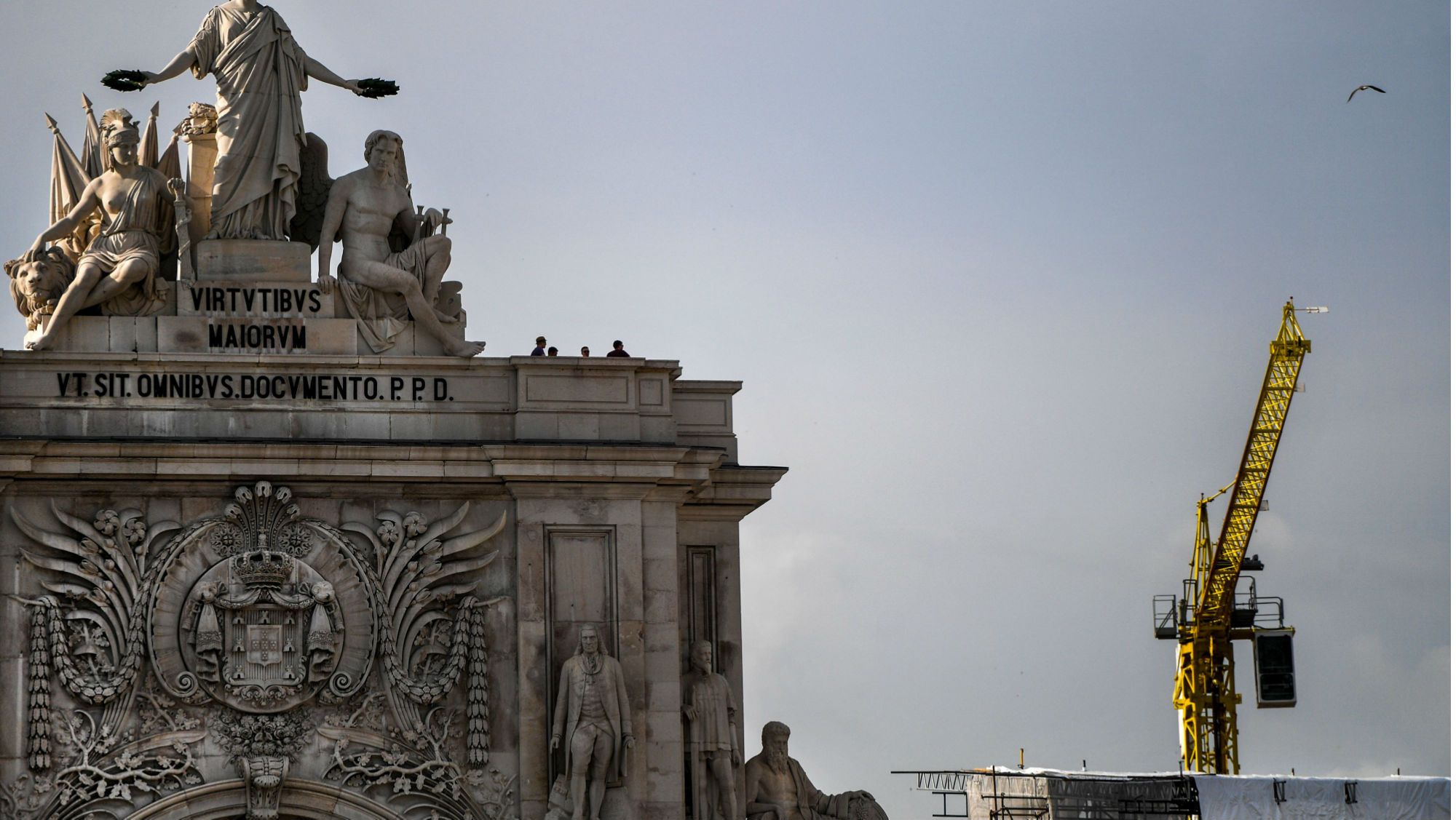By George Friedman
My first encounter with fado music, the emblematic music of Portugal, was many years ago. It was at a dinner in Lisbon that began at 11 p.m. and included two Indian spice merchants who were vehement Indian nationalists a Portuguese who lived in Mozambique. A woman of a certain age, accompanied by a guitarist, began singing a song that seemed to me four parts mournful and one part erotic. We were sitting at a wooden table in a dark and smoky basement, our heads close together, plotting things so preposterous that we did an injustice to a setting that would have graced the best of novels.
Fado means fate, and fado music is mostly of a fate filled with sorrow and impotence. It is also music of reconciliation. It is music of a nation that was once great, lost that greatness and then sank into the swamp of fascism, a swamp not drained until 1974. When I last visited Lisbon, there was a sense of languor, a listlessness that for me was symbolized by the odd sense of time. A meeting scheduled for 5 p.m., whether with a banker or a date, might not take place until 11 p.m. or even the next day. For an American, this was a violation of a code of honor in which time is sacred. In Portugal, I realized this was far from rudeness. Rather, it derived from a feeling that there was nothing urgent for either party, and behind that a feeling that the reality was such that the matter at hand didn’t matter in the scheme of things. Fate does not tremble at the thought of humans being on time.
The sense of fado was not present on my latest visit. Portugal had changed in some real if subtle way. Time mattered. There was even a feeling of bustle. There were buildings and banks that had not been noticeable before. And there were proud and frustrated stories about the rise in the price of real estate, which previously had languished with the rest of the country. Those whom I met and heard, from present and former government ministers to students with grand and quite practical plans for their future, did not lack a sense of possibilities or an urgency in pursuing them. Languor had become simply graciousness, and fate merely a barrier to overcome. The music of fado, I sensed, is listened to primarily by tourists, who now flood the country, and rarely by young lovers accepting their limits.
This surprised me. I am used to thinking of southern Europe as deeply troubled by economic forces, and I must admit, I tend to think of Portugal as a southern European country. I also remember early in the post-2008 drama, when the European Union was confronting not Polish or Hungarian evil but the feckless incompetence of what was referred to as the PIGS (Portugal, Ireland, Greece and Spain). Portugal has left the group and now enjoys a growing economy and low unemployment. I shouldn’t be surprised by this, but the older sense of melancholy and the later connection with Greece and Spain in my eyes – coupled with the truth that I rarely think about Portugal – hid that reality.
Remnants of Empire
The Portuguese now think of themselves as having three relationships with the world. The first is with the European Union, but there is deep concern about its fate. The second relationship is with Britain, with which Portugal has been allied for centuries, particularly against the Spanish, whom the British occasionally confronted. Spain is still regarded with unease by many Portuguese I spoke to. Finally, and very important, are the creations of the Portuguese empire: Mozambique, Angola and Brazil, among others. I was constantly reminded that it was the Portuguese who first intruded on India and China, taking Goa and Macau as their own. Indeed, my host one night at a dinner was a gentleman from China who owned substantial property in Portugal, via his even larger holdings in Macau, and there was an Indian at our meetings who spoke Portuguese well (not that I could really tell). Portugal has a map of the world with layers that others, including other Europeans, don’t see.
I wrote a book on the future of Europe three years ago that started with a trip to Sagres, a small Portuguese peninsula jutting into the Atlantic Ocean. It is a forbidding place, windy and chilly even in the summer. It is almost never crowded, even though it changed the history of the world. It was here that Portuguese Prince Henry created a school for navigators, and it was here that some of the greatest learned the art of navigation, sailing their ships farther and farther south, until they finally rounded the Cape of Good Hope into the Indian Ocean. The systematic exploration of the south Atlantic and Indian oceans yielded the first European global empire, an empire that made the Silk Road obsolete.
As you look at a map of Africa, you can see small Portuguese-speaking enclaves, the remnants of supply stations for the empire. You can also see the remnants of empire in the streets of Lisbon, where Africans from these former colonies mix easily with white Portuguese. Even more intriguing is that many Portuguese themselves were born in these African colonies, particularly Mozambique. On this trip, we were the guests of a man born in Mozambique who graduated from a university there and lived there through early adulthood. Today a respected economics professor, consultant and confirmed bourgeois, he happily recounts his days in Mozambique as an equally dedicated Marxist.
Portugal gave up its African colonial power after 1974, a defining moment in its history. Until then, Portugal was under the control of the Salazar regime, which took power early in the rise of European fascism. Mild by German or even Italian standards, the regime still froze Portugal’s internal life. Given its crucial position on the Atlantic, and its neutrality in World War II, which shifted with precision as the winds of war dictated, Portugal was admitted into NATO. It was a time in which Europe was ashamed of its past and terrified of its future. The United States had learned that being fastidious in selecting European allies was paid for in blood. Portugal became part of NATO and retained its colonies.
In 1974, a coup took place that began with the hijacking of a ship and ended with Secretary of State Henry Kissinger, who viewed the United States as being in decline, accepting a Marxist regime in Portugal, while Frank Carlucci, U.S. ambassador to Portugal, refused Kissinger’s read and faced down the coup’s architects. There is now a school here that bears Carlucci’s name. Thus, the United States was deeply involved in shaping the 1974 coup, keeping Portugal out of the Soviet bloc, and opening the way for liberal democracy. For me, history is filled with regrettable intrusions by the United States, but also with invaluable ones, such as returning liberal democracy to Europe. Portugal was an episode in that.
The colonies were another matter. The political winds in southern Africa blew toward the Soviet Union, which had supported anti-Portuguese and anti-apartheid revolutionaries when the United States would not. Thus, 1974 and the end of the Portuguese empire was deeply bound up in the Cold War. My host and now friend lived the life of a man who served the revolutionary republic of Mozambique, and then, returning to Portugal, accepted the less heroic but perhaps more decent path of a European.
1974 was the break point of Portuguese history. It overthrew a fascism that would live on a bit in Franco’s Spain. It found itself suddenly immersed in the jungle and back alley wars of the U.S.-Soviet confrontation. It gave up the empire that had been crafted by Vasco da Gama and others and ultimately it accepted its place in the European order.
Reconciliation
The Portuguese value Europe, but it is still somewhat alien to them. Spain rests between Portugal and the rest of Europe, and it is interesting to hear how uneasy the Portuguese are about Spain, its instability and its assertiveness. It was Spain that came late to the Portuguese imperial feast, then surpassed and threatened it. Much of the concern about Spain has deep historical roots, which the Portuguese still resonate with in interpreting the world. They still look to Britain as their centuries-long ally, and they take that relationship very seriously. They talk occasionally of Atlantic Europe and the Atlantic bloc. They mean by this Britain and might mean the U.S. as well, except for irritants such as downsizing the U.S. air base in the Azores, which helped support the economy of the islands. And above all, they still speak of their former empire as the Portuguese-speaking world.
Brazil is the special case, the child towering over the parent, and to some the real leader of the Portuguese-speaking world. The Portuguese don’t seem to begrudge Brazil this position, but they would like to participate in its success. The Portuguese do not engage in fantasies of international power, and they don’t plot their way to greatness, but they still long for a share in Brazil’s achievements.
Portugal is not, therefore, the typical European country, simply accepting its European identity and believing in and hoping for the best from Europe. Portugal is part of Europe, but it flies many different flags, from fascism to Marxism to liberalism; from Brussels to London and Washington; from Maputo to Luanda and Brasilia. For a country in which the simple, elegant and reserved fado speaks, its geopolitics is as complex as imaginable. But of course, it was once a great empire and never really forgets it.
The Lisbon Geographic Society has a museum that in a way is at the center of Portugal. It is a collection of eclectic items from the corners of the Portuguese empire, a testament to the navigators who trained at Sagres and transformed what it meant to be human – a single species stretching the world. The museum is a place of remarkable elegance and dignity, and it is centered on two magnificent globes. It is the pride of Lisbon, as the Vasco da Gama Bridge is the modern manifestation of the ancient heritage.
All European countries live in their past in a way that the U.S. cannot. For many, the best is behind them. For the U.S., the future must be better than the past, as our past is thin. Reconciling a nation to a past greater than the present is both hard and dangerous – hard because it means accepting that what you will live pales in comparison to the past, dangerous in the sense that the urge to try for something greater still was what turned Europe in the 20th century into a charnel house.
The Portuguese seem to know, since 1974 and well before, that there is no going back. But they take great joy in recalling who they were and recognizing that the past is still buried in them, as they think of the Portuguese-speaking world, alliance with Britain and the threat of Spain. The Portuguese are in Europe as a matter of necessity, and they do well. But their heart belongs to the past.
I began by speaking of fado, the music of fate, that now seems to belong more to tourists than even the singers. But fado is at the heart of Portugal, because it reminds them of the fate that rules them, and reminds them that they are still one thing that no one else can claim. They are Portugal, which discovered what humanity actually was, and what the world it resided on consisted of. Their fate was to move beyond it in their lives, but never fully in their memories.






 The Geopolitics of the American President
The Geopolitics of the American President